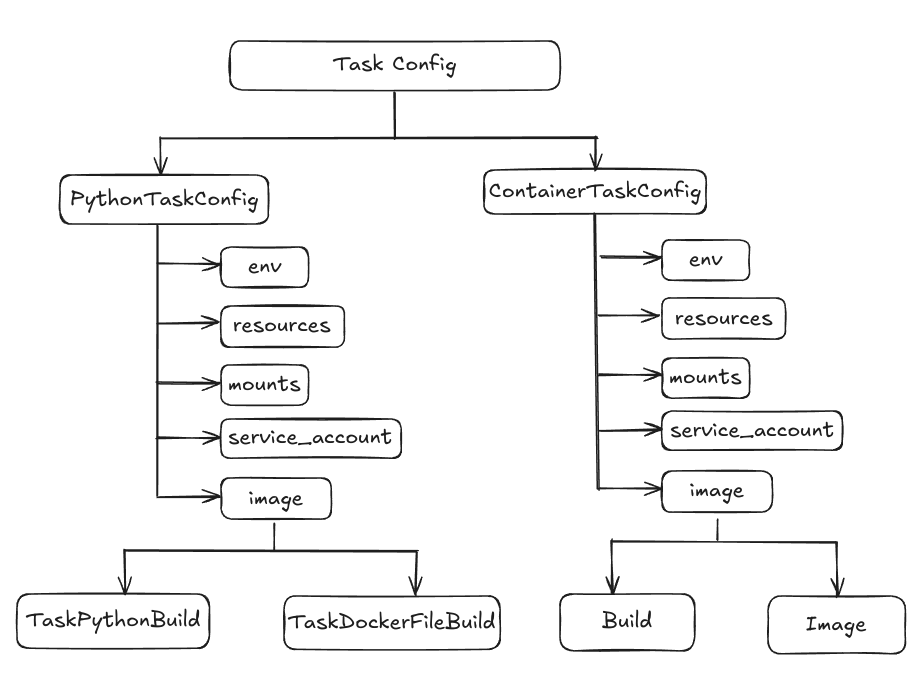Things you can define in task config
- env: you can pass the environment variables as
envin task config, whereenvis a dictionary of key-value pairs. - service_account: you can pass the service_account name in the task config which is necessary to save the input and output data of the task.
- resources: You can define the resource to allocate to each of the tasks, where you can define the cpu limit, storage limit, memory limit, GPU types, etc. You can refer to this article for more information on each.
- mounts: You can attach volume mounts such as volume mounts, string mounts or secret mounts. You can learn more about mounts and how to use them in workflow in this guide.
Types of task config

-
There are two types of task config PythonTaskConfig and ContainerTaskConfig.
-
PythonTaskConfig: This task config can be passed in the normal python task in the task decorator. You can define the environment variables, Resources, service account, and the image spec in PythonTaskConfig. The image spec can be of two types TaskPythonBuild and TaskDockerFileBuild.
- TaskPythonBuild is used when you do not have a Dockerfile and you want to build an image where you want to specify the pip packages, apt packages or requirements file path in the build spec, then TaskPythonBuild is used.
- TaskDockerFileBuild is used when you already have a Dockerfile and you just want to build then you use TaskDockerFileBuild.
- ContainerTaskConfig: This task config can be used when you already have a docker image and you want to use that as a task in the workflow directly or you have code uploaded on GitHub or the remote source. There you have a docker file which you want to use as a task in the workflow.
-
PythonTaskConfig: This task config can be passed in the normal python task in the task decorator. You can define the environment variables, Resources, service account, and the image spec in PythonTaskConfig. The image spec can be of two types TaskPythonBuild and TaskDockerFileBuild.